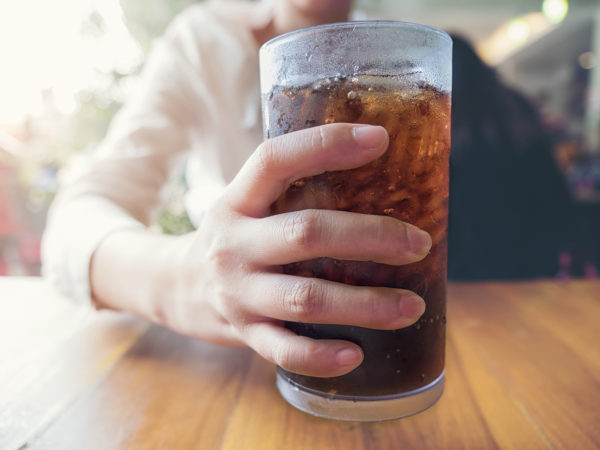Do Diet Drinks Cause Strokes?
I’m concerned about the report that drinking diet sodas can cause strokes in women. Can you give me any details about this?
Andrew Weil, M.D. | April 8, 2019

You’re referring to a study published in the scientific journal Stroke in February of this year (2019). It found an association between drinking two or more diet sodas or artificially sweetened juices daily with a higher than normal risk of stroke among postmenopausal women. Specifically, the researchers reported that women who regularly consumed diet drinks were 23 percent more likely to have a stroke than women who drank artificially sweetened drinks less than once a week or not at all. The results also showed a 29 percent increase in the chances of developing heart disease or having a fatal or non-fatal heart attack among women who drank two or more diet drinks daily compared to those who rarely consumed these beverages. The researchers first adjusted for the women’s age, high blood pressure, and smoking – all risk factors for stroke.
Here are more findings:
- Women who consumed these drinks twice a day or more were 16 percent more likely to die of any cause during the study than women who seldom if ever drank diet sodas and juices.
- Women who consumed diet drinks daily and had no history of heart disease or diabetes were more than twice as likely to have a stroke caused by a blockage of one of the small arteries in the brain than women who rarely consumed these drinks.
- Obese women without a history of heart disease or diabetes who drank artificially sweetened beverages daily were TWICE as likely to have an ischemic stroke (the kind caused by a blood clot) than women who rarely or never consumed diet drinks.
- African-American women with no previous heart disease or diabetes who consumed diet drinks daily were almost 4 times as likely to have an ischemic stroke than women who didn’t drink these beverages.
To arrive at these conclusions, the researchers analyzed information from 81,714 women between the ages of 50 and 79 who were enrolled in the long-running Women’s Health Initiative study. When they had been in the study for three years, the women were asked to report how often they had consumed diet drinks over the previous three months. The researchers then tracked the women’s health for the following 12 years.
Because the participants were not asked to specify the drinks they consumed, the researchers “don’t know which artificial sweeteners may be harmful and which may be harmless,” according to study leader Yasmin Mossavar-Rahmani, Ph.D. of Albert Einstein College of Medicine in New York City. More research is now needed to answer that question.
The good news from the study is that only about five percent of the women participating consumed diet drinks heavily and nearly two-thirds drank them less than once a week or not at all.
While the new findings are disturbing, they reveal only an association between consuming artificially sweetened beverages and stroke, not cause and effect. But you should be aware that this study isn’t the first to link artificial sweeteners to serious health problems. I’ve reported earlier on this site about research associating consumption of artificial sweeteners with higher risks of type 2 diabetes, heart attack and stroke, kidney problems and even premature birth. At the time, I noted that since artificially sweetened foods and drinks haven’t made a dent in our national obesity epidemic and seem to be doing more harm than good, you’re better off without them.
Andrew Weil, M.D.
Source:
Yasmin Mossavar-Rahmani, “Artificially Sweetened Beverages and Stroke, Coronary Heart Disease, and All-Cause Mortality in the Women’s Health Initiative,” Stroke, February 14, 2019, https://doi.org/10.1161/STROKEAHA.118023100Stroke.2019.0












